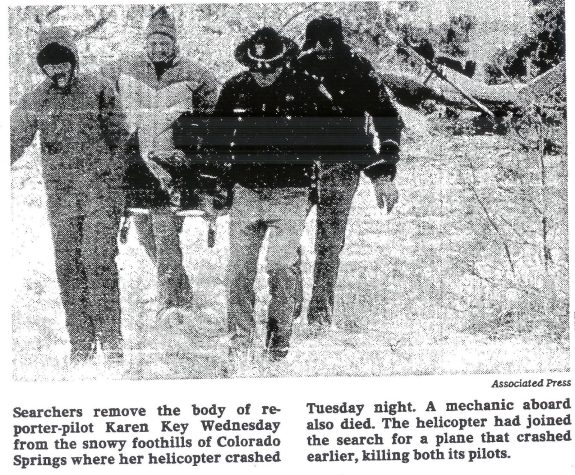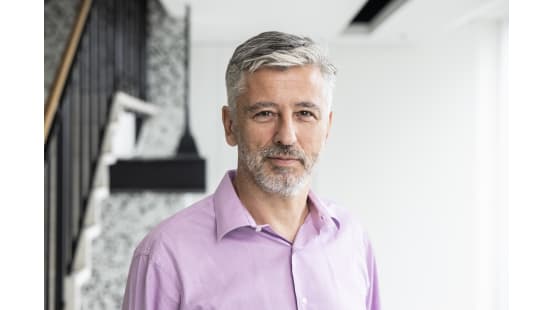An Open Letter: Save Toondah – it’s the Vibe…

By Callen Sorensen Karklis
Dear Readers,
Seventeen years ago I was inspired by the change that the 2007 federal election saw after the aggressive rollout of WorkChoices, and the fear with it that everyday people’s working rights would be taken away. In Kevin Rudd I saw the promise of change from somebody with a vision on climate action, restoring workers’ rights, policy reforms that would bring Australia into the 21st century, bringing in the NBN and Fair Work and apologizing to the Stolen Generations which for me was important as a First Nations Quandamooka person.
During high school I had a part-time job in retail, hearing everyday people’s personal issues no matter how mundane or extreme. I decided then that I’d one day become involved in politics. I joined my union and became active in helping the Australian Labor Party upon finishing school. My first involvement was in the 2012 Qld State Election, which was brutal. I saw the Bligh Government decimated by 44 seats from 51 to a rump of 7 seats in Opposition when Campbell Newman was elected in a super majority landslide, no thanks to the GFC asset sales backlash! What transpired, however, under Newman was more asset sales but on steroids!
The LNP sadly defeated the former progressive coalition of Independents, Labor, and Greens under the Hobson led Redland City Council in 2012 as well after a term in office. This saw the LNP on all three levels of government by 2013 locally. Unfortunately, the LNP pushed hard on overdevelopment proposals such as building at Ramsar wetlands in Toondah Harbor.
I became heavily involved in the ALP branches of my area and Young Labor climbing the party executive ladder as an organizer assisting the Labor Left with the naïve view, I could change the world piece by piece in the fight for progressive rights for all. All while starting my studies at Griffith University studying political studies, international relations, and business.
I ended up campaigning for the ALP at the 2014 by-elections and 2015 Qld State Election where we saw the rise of Annastacia Palaszczuk and her Labor Left deputy Jackie Trad. As the party gained traction electorally locally and in QLD however, I discovered while becoming involved in policy roles that the ALP had U-turned its previous opposition to the Toondah Harbor development proposals and expanding it from a proposed 800 units to 3600 units in Ramsar Wetlands.
Plans of old proposed by the “Sir Joh” Nationals white shoe brigade era of government in the 1970s–80s built the Raby Bay and Gold Coasts on the power of money, brothels, and white snow. The Goss and Beattie State Labor era policies to protect Ramsar Wetlands were being abandoned. Upon discovering this I joined with groups such as Redlands 2030, Labor LEAN, CARP, Save Straddie, and later Birdlife Australia, KAG, the ACF, and local Indigenous elders in council to fight against the development of Ramsar Wetlands.
In the fight to Save Toondah I became disillusioned with the ALP, including on the unfolding Adani issue and left the party in a public spat across media headlines in 2017–2018. I took it upon myself to fight a tough campaign to run for City Council in Redlands against the LNP aligned incumbent. I ended up amid bitter infighting among the ALP as a colleague and friend in my local FEC and I competed against each other against the LNP incumbent during the Covid council election in 2020. We both lost and learnt lessons in our campaign. I gained 19% of the vote. I ended up helping a TEAL run for the seat of Oodgeroo on the Toondah issue helping the union movement during the Pandemic with both workers and students losing their livelihoods during lockdowns.
Rejoining the ALP in 2020 I worked briefly for former Brisbane Labor leader Cr Peter Cumming and assisting Labor during the 2022 Federal Election. Sadly, my final stray with the ALP was human rights breaches on youth offenders, rental, and cost of living crisis due to increasing inflation. It was the Toondah issue that pushed me further into community radio and journalism while I also contemplated on how to find the best cause fighting for my people as an Indigenous person. This is why I left the ALP to join the Greens. On the plus side the campaign harnessed how I developed my skills in campaigning and enhancing my advertising skills which I worked in briefly, whilst eyeing for the right candidates to assist.
While I commend the actions of the ALP Federal Environment Minister Tanya Plibersek in rejecting the Toondah PDA and doing the right thing, I lost faith with Labor for the Toondah PDA for happening in the first place. That said, there were good people in Labor, particularly LEAN and former State Ministers like Rod Welford and Pat Comben advocating with unionist and ALP party members to say “NO!” to the development against Labor MPs and RCC Crs Labor and LNP alike in favor of the development. What we saw was a stacked rort against the everyday working taxpayer and locals being passed the buck for a shitty idea! Greenies like Jono Sri, Michael Berkman, Amy MacMahon, Emerald Moon, the Mazlins, Larissa Waters, Penny Allman Payne, Carmen Lawrence and Max Chandler Mather did great by pushing hard on Labor to do the right thing in all levels of government. They were supported by progressive Independents in Redlands like Cr Wendy Boglary, Cr Lance Hewlett, Cr Paul Bishop and former Cr Craig Ogilvie and Cr Adelia Berridge. But it wasn’t politicians that won the day, it was pure people and grassroots that won the day!
Groups like Redlands 2030, ACF, and Birdlife Australia coordinated large, coordinated protests in Cleveland with thousands in attendance; numbers not seen since the anti-Raby Bay and original Toondah protests in the 1980s at GJ Walter park, Raby Bay Harbor, and RCC council chambers in Cleveland. This created large mass media attention including roadside actions, rallies, letters to the editor, media interviews, letters to politicians, mass petitions with the highest gaining over 70,000 signatures, and heaps of letterbox drops, street stalls, shopping centre stalls, and door knocking constituents. Yes, this was exhausting, time-consuming and extremely taxing including on one’s personal mental health, but it was certainly rewarding in the people we met along the way!







The Current Politics of the Proposal
We applied the same skills and tactics of a hard fought 10-year campaign to finally flip the Redland City Council elections. We were 2 votes short of a majority in Redland City Council, but we were successful in flipping the Mayoral race away from the LNP for the first time in 12 years as Redlands has only had three non-LNP Mayors since 1991. We applied the same tactics of grassroots people power to get a progressive TEAL up as Mayor. The QLD State Government remains coy on the issue having previously supported it until the change of Premier.
The LNP majority re-elected Cr Julie Talty as Deputy Mayor who served under the Williams LNP council era in 2020-2024 who also ran against ALP MP Mick De Brenni in Springwood. Because Mayor Jos Mitchell was short of the 2 required votes she could not overrule the majority needed to disclosures the Williams LNP led Council made in after 2012. (Which prevented Jos from being able to speak out against the development.)
In true Australian spirit reminiscent to a story straight out of classic 1997 Aussie film The Castle when the Kerrigan family took on a developer from destroying their home and neighborhood from an airport expansion, the Toondah saga has been a long 10 years for many locals since 2014. But as the family lawyer points out “It’s the Vibe!” in this case Saving Toondah, it’s the vibe! But we need your help as progressive readers to send a powerful message to the minister! To have community voices heard not just in the Redlands but Australia wide!
With 10 days given for a right of reply for all parties involved in this debacle
You can have your say with Federal Environment Minister Tanya Plibersek here: EPBC Act Public Portal
Minister Plibersek is asking the community right now if she should continue to reject the development at Toondah Harbour. Please send her a short quick email supporting her to save the bay: Her email address is: minister.plibersek@dcceew.gov.au
Kind Regards, Callen Sorensen Karklis
Progressive contributor to The Australian Independent Media Network
“Together we can SAVE TOONDAH!”
 Callen Sorensen Karklis, Bachelor of Government and International Relations.
Callen Sorensen Karklis, Bachelor of Government and International Relations.
Callen is a Quandamooka Nunukul Aboriginal person from North Stradbroke Island. He has been the Secretary of the Qld Fabians in 2018, and the Assistant Secretary 2018 – 2019, 2016, and was more recently the Policy and Publications Officer 2020 – 2021. Callen previously was in Labor branch executives in the Oodgeroo (Cleveland areas), SEC and the Bowman FEC. He has also worked for Cr Peter Cumming, worked in market research, trade unions, media advertising, and worked in retail. He also ran for Redland City Council in 2020 on protecting the Toondah Ramsar wetlands. He also advised the Oodgeroo Teal campaign in 2020. He now active in the Redlands and Qld Greens. Callen is active in Redlands 2030, the Redlands Museum, and his local sports club at Victoria Pt Sharks Club. Callen also has a Diploma of Business and attained his tertiary education from Griffith University. He was a co-host from time to time on Workers Power 4ZZZ (FM 102.1) on Tuesday morning’s program Workers Power. He has also worked in government. Cal was a coordinator for Jos Mithcell’s Redlands Mayoral campaign in 2024.
Like what we do at The AIMN?
You’ll like it even more knowing that your donation will help us to keep up the good fight.
Chuck in a few bucks and see just how far it goes!
Your contribution to help with the running costs of this site will be gratefully accepted.
You can donate through PayPal or credit card via the button below, or donate via bank transfer: BSB: 062500; A/c no: 10495969




























